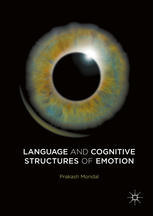

Most ebook files are in PDF format, so you can easily read them using various software such as Foxit Reader or directly on the Google Chrome browser.
Some ebook files are released by publishers in other formats such as .awz, .mobi, .epub, .fb2, etc. You may need to install specific software to read these formats on mobile/PC, such as Calibre.
Please read the tutorial at this link: https://ebookbell.com/faq
We offer FREE conversion to the popular formats you request; however, this may take some time. Therefore, right after payment, please email us, and we will try to provide the service as quickly as possible.
For some exceptional file formats or broken links (if any), please refrain from opening any disputes. Instead, email us first, and we will try to assist within a maximum of 6 hours.
EbookBell Team

0.0
0 reviewsThis book examines linguistic expressions of emotion in intensional contexts and offers a formally elegant account of the relationship between language and emotion. The author presents a compelling case for the view that there exist, contrary to popular belief, logical universals at the intersection of language and emotive content. This book shows that emotive structures in the mind that are widely assumed to be not only subjectively or socio-culturally variable but also irrelevant to a general theory of cognition offer an unusually suitable ground for a formal theory of emotive representations, allowing for surprising logical and cognitive consequences for a theory of cognition. Challenging mainstream assumptions in cognitive science and in linguistics, this book will appeal to linguists, philosophers of the mind, linguistic anthropologists, psychologists and cognitive scientists of all persuasions.